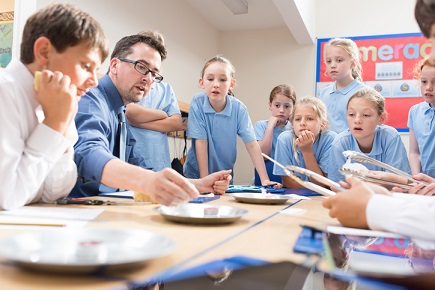
New research offers some insights on the impact of perceived teacher hostility on student outcomes.
The study, conducted by researchers from the University of West Virginia, found that students sitting a test with a hostile teacher performed 5% lower on average than students in a class with a neutral teacher.
Lead author, Alan Goodboy, a communications professor and bullying researcher at the University of West Virginia, published the findings in the journal Communication Education.
“The data tell a simple and perhaps unsurprising story: Some instructors are candidly mean to their students, and as a consequence, their students believe they learn less,” Goodboy said.
"Even slight antagonism, coupled with otherwise effective teaching, can demotivate students from being engaged and hinder their learning opportunities.”
Goodboy added that even one bad day of teaching can ruin a student's perception of the teacher and “create an unnecessary roadblock” to learning for the rest of the term.
Other studies have supported these findings.
A study by Carrie Furrer, Ellen Skinner and Jennifer Pitzer from Portland State University found that rejection has been related to losses in academic motivation and performance.
“Peers can fail to meet a student’s needs when they are rejecting, confusing, or coercive,” they wrote in a paper titled: ‘The influence of teacher and peer relationships on students’ classroom engagement and everyday motivational resilience’.
“Hostile or rejecting interactions with peers erode feelings of belonging. Indeed, research has found that hostile, rejecting, or detached friendship groups make adolescents feel lonely and alienated, and promote social anxiety and distress.”
The researchers pointed to one common issue that arises when passive, unmotivated or openly hostile students prompts teachers to respond by withdrawing their attention or becoming more demanding.
“Both of these typical responses add fuel to the fires of disaffection, as students interpret these teacher behaviors as evidence that ‘this teacher doesn’t like me’ or ‘this teacher is so mean’,” they wrote.
“In the language of the motivational model, teachers typically respond to student disaffection with decreasing involvement and increasing rejection and coercion, just the kinds of reactions that escalate student disaffection.”
The researchers said that in this instance, it would be useful for students and teachers alike if pathways out of mutual disaffection could be initiated by teachers.
“Teachers should be encouraged to view student motivational issues not as evidence of inadequacies in their teaching or students’ character flaws, but instead as information about classroom dynamics,” they wrote.


